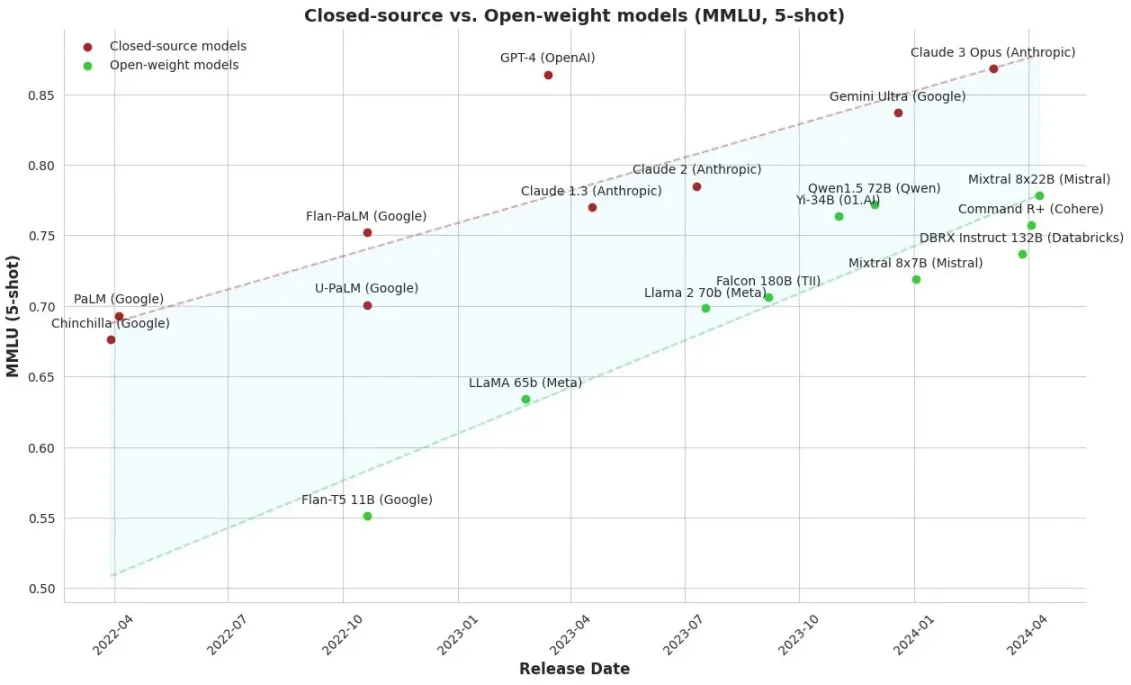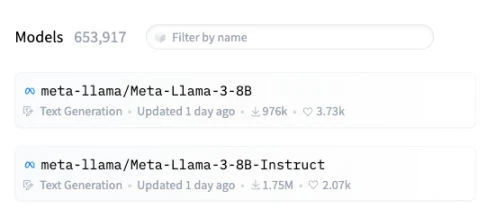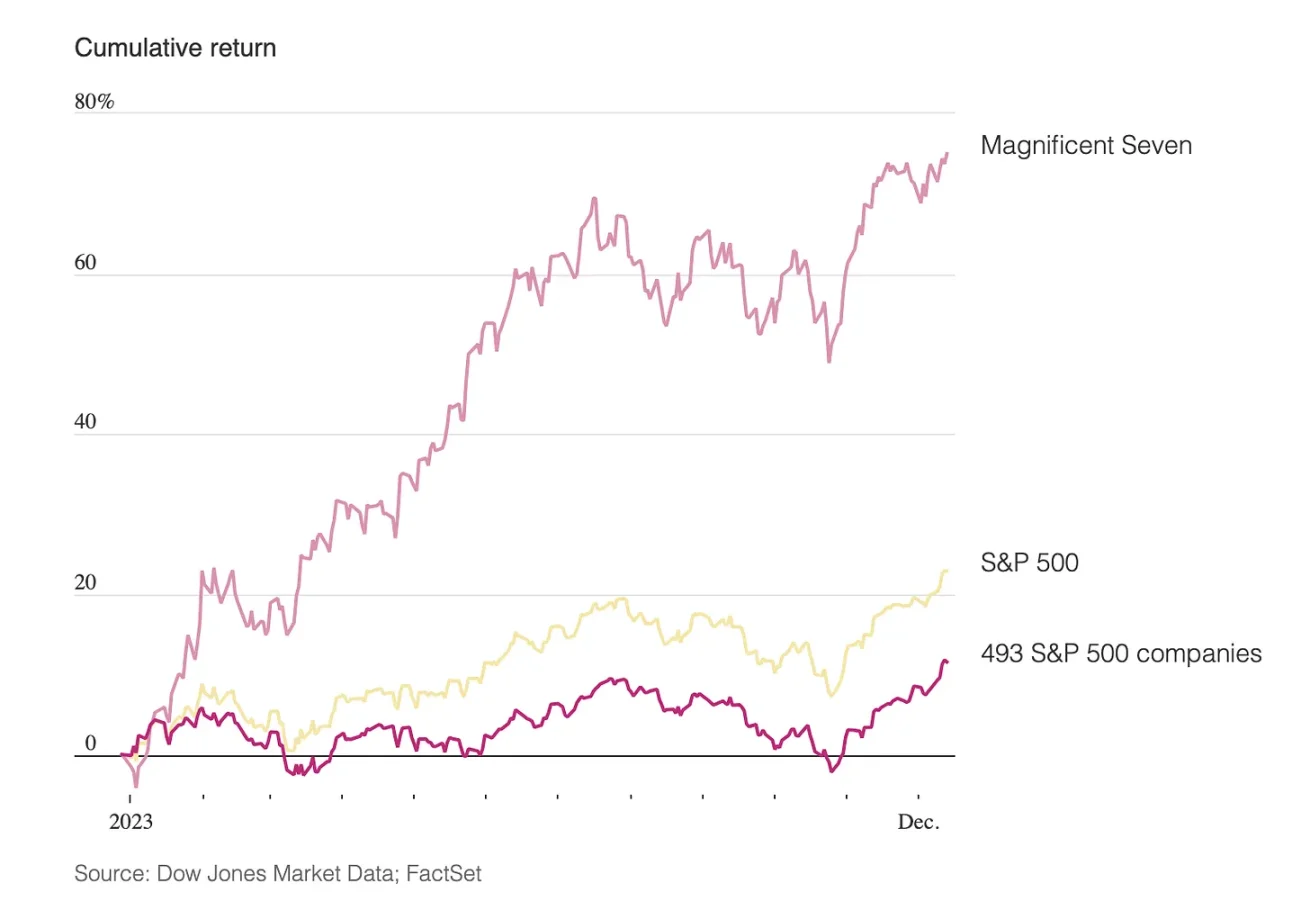Original author: Teng Yan
원문: 루피, 포사이트뉴스
A metaphor I’ve heard is that generative AI means discovering a new continent on Earth with 100 billion super-intelligent people willing to work for free.
Unbelievable, isnt it?
The 21st century will be known as the era of artificial intelligence for mankind.
We are witnessing the early development of a new generation of technology that will change society more profoundly than the discovery of electricity, the harnessing of nuclear energy, or even the harnessing of fire. Don’t take my word for it, the King of England said this:
What a time! Who knew that feeding an algorithm large amounts of data and superimposing huge computing resources would allow AI to develop astonishing new capabilities? It can now synthesize, reason, and actually have conversations with us. It enables us to interact with all of human knowledge in natural, intuitive language.
As Marc Andreessen succinctly put it, AI will save the world.
Technological paradigm shift
Cryptocurrency and artificial intelligence represent two of the most important paradigm shifts in technology this century.
A paradigm shift is an innovation that:
-
fundamentally changing the way we operate and think about the world;
-
Widely applicable to all walks of life;
-
Unlocking new levels of productivity for humanity.
I am excited about transformative advances, not the latest viral social media app. AI and cryptocurrency are developing along their own paths, but I expect the two to converge. They are complementary:
-
AI = Data, Computing, Autonomous Agents
-
Cryptocurrency = Ownership, Economic Coordination, Censorship Resistance
Balaji says let’s tokenize everything. Can you understand?
Behind his tongue-in-cheek comment lies a groundbreaking truth. When these two forces, cryptocurrency and artificial intelligence, merge, something extraordinary happens. Cryptocurrency acts as a natural orchestration layer for the AI stack, revolutionizing the way we interact with technology and each other.
Open Source ≠ Decentralization
It irritates me that the terms “open source” and “decentralized” are often conflated and often used interchangeably. When I talk to people about decentralized AI, a common response is:
“Okay, but don’t we already have open source AI models?”
These are two very different concepts. The easiest way to understand this is to think of decentralized AI as a subset of open source AI.
Open source focuses on the accessibility and collaborative development of software code, while decentralization focuses on the distribution of control.
Level 1: Open Source
Open source development allows public access to source code, which can be reviewed, modified, and distributed by anyone. This approach is built on collaboration, transparency, and community-driven development.
The collaborative nature of open source development allows for rapid iterations and shorter development cycles. I liken it to building a skyscraper: anyone can improve and build on the previous work of others, and can achieve their goals faster.
example:
-
Linux is an open source operating system that has become the cornerstone of servers, supercomputers, and consumer devices. It powers most of the worlds network servers. Its development involves thousands of programmers and is known for its stability and security.
-
Likewise, Android’s open source nature has made it the world’s dominant mobile operating system, allowing manufacturers like Samsung, HTC, and Xiaomi to create a wide variety of hardware products running Android, greatly lowering the barrier to entry for new players.
In the field of artificial intelligence, open source models are released under a license that allows anyone to use them directly or fine-tune them for specific use cases. For example, models such as Mixtral 7 B and BERT are available for public use and modification.
The open source movement is growing rapidly. Currently, there are over 653,000 open models available on Huggingface.
Source: Huggingface.co
It’s encouraging to see large open source AI models quickly catching up to proprietary models. Meta’s Llama-3 cost tens of billions of dollars to train, and now anyone with internet access can use it. It outperforms GPT-3.5 and is quickly catching up to GPT-4.
This was not the case in early 2023, when there was a huge performance gap between GPT-4 (closed) and Llama 65 B (open). No one thought it would be possible to run a GPT-4-quality model on their own computer. In just one year, the gap has narrowed significantly, and will likely continue to narrow.
You may want to know:
Why would a company like Meta spend billions of dollars training AI models, but then open source them?
-
Ultimately, it comes down to a core belief that technological progress is not a zero-sum game. It means everyone wins.
-
Improvements to the model made by the community can directly benefit Meta. For example, if someone optimizes the model to reduce running costs, Meta can save money.
-
It will not impact Meta’s app-specific advertising business (e.g. Instagram, Facebook). This strategy is likely part of a scorched earth policy to put pressure on companies that have built businesses around proprietary base models (like Microsoft and OpenAI). Open source alternatives would obviously undermine the commercialization of proprietary models.
Zach understands why open source is important
Common sense in technology applies here: If youre ahead, keep it proprietary. If youre behind, make it open source.
I hope well continue to see high-quality open source AI models for anyone to fine-tune and build applications on. This is important. Open source models offer better security (more people are paying attention to them), greater flexibility for customization, and are more cost-effective than closed source models.
The free market has already solved the problem of availability and accessibility of more powerful foundational AI models, making them a commodity and public good.
To be clear, I am not an extremist calling for open source for everything. Proprietary models are important, and they may outperform open source models for specialized tasks. It is wise for startups and entrepreneurs to take the open source model, fine-tune it for specific use cases, and create proprietary applications. Open source and proprietary models will coexist. However, we must continue to advocate for the open source foundation model and not take its availability for granted.
Open source AI is only part of the decentralized picture. This extends to the question of the distribution of power, which we will discuss below.
Level 2: Decentralization
99% of my readers would agree that AI is an exponential technology that reflects the collective wisdom of humanity. With great power comes great responsibility. We cannot fight centralization of AI with centralization.
Instead, we need to think differently.
Decentralization is a philosophy, even a cult, that is rooted in the principle of returning power to the individual. This naturally conflicts with our centralized modern world, where most of our technological influence is concentrated in a few large companies (big tech), such as the stock market.
In 2023, the “Big Seven” — Apple, Microsoft, Alphabet, Amazon, Nvidia, Meta, and Tesla — saw their share prices surge by nearly 80%, significantly impacting the performance of the Nasdaq and dominating the SP 500. This is due to their dominant position in the technology sector, which gives them significant competitive advantages and pricing power. The market also factored in their expected dominance in artificial intelligence into their pricing.
The harsh truth is that the internet has been monopolized. We do not own any of the content we create online. Instead, we become unwitting participants in a digital ecosystem controlled by big tech companies. I call this digital slavery. If our digital slave masters dont like what we do or say, we are silenced, or banned from the platform.
Currently, general artificial intelligence has been monopolized by large centralized companies, such as Microsoft-OpenAI, Amazon-Anthropic, and Google-Gemini. Large technology companies have an early advantage in LLM training, which requires large data sets and computing resources.
Despite their public declarations: “We are building for the future,” actions speak louder than words. History shows that big tech companies’ priority is often to maintain their monopoly, not to innovate, and use their funding to reinforce that.
One way is to engage in regulatory capture, lobbying for industry regulations that only they can abide by, setting high barriers to entry and suppressing new competition. They also have the capital to acquire emerging competitors. This strategy has made them successful in the past.
A potentially dark future
Imagine a world where AI is largely controlled by large tech companies. In this Orwellian dystopia:
The inner workings of AI systems, from training to inference, remain hidden from us. This lack of transparency is concerning, especially since we will be using these systems to make decisions that have a significant impact on our lives. In high-stakes areas such as healthcare, trustless verifiability is critical. A sad example is Babylon Health, which heavily promoted its personal AI doctor. However, it was later discovered that their AI doctor was just a set of rule-based algorithms running on a spreadsheet and did not work as advertised. Billions of dollars in investment were lost and people were hurt.
AI systems are susceptible to manipulation and bias. Google’s Gemini received backlash for erroneously generating images of historical figures depicting racially altered backgrounds (a black “founding father” and a black pope). The potential misuse of AI to shape public opinion, influence markets, or sway political outcomes is real.
Source: @Endwokeness
The problem of censorship is widespread and is only getting worse. In some countries, AI companies need government approval or licensing as part of a broader government strategy to ensure that AI development is consistent with national interests and security policies.
We no longer own our data. Instead, we are at the mercy of our data being collected and used to feed large centralized AI models, often without our consent or fair compensation. I live in a world where our data and personal AI are not under our control. Governments and those in power will do whatever it takes to stay in power, including by violating our privacy.
If left unchecked, our society risks becoming overly dependent on a few powerful, monopolistic AI systems. Our dependence on these systems prevents us from opting out, locking us into specific platforms where we become mental slaves.
Mark Zuckerberg highlighted this issue in a recent interview, saying that it would be a serious problem if one company had better AI than others. This would limit the technological advantage to a few products and people. Taking an open source and decentralization-first approach can help alleviate these concerns.
So, let me ask you: Would you want the most transformative technology of this century to be controlled by a small group of people?
What are the alternatives?
We need a way to balance the centralized power of AI technology so we can shape the post-AI world we want: a democratic, open, and fair one.
This is where cryptocurrency comes in. With cryptocurrency, we can uphold the following key principles:
-
Decentralized control: Decision-making and control are distributed across the network and governed by code rather than in the hands of any single entity.
-
User authorization: Users have ownership of their assets and data.
-
Censorship resistance: The network operates without a central authority, preventing any single entity from wielding censorship power.
When talking to founders of projects in the Crypto x AI space, I always ask them why they use blockchain/cryptocurrency in their products and whether they can do the same thing off-chain. Often, it is better, faster, and cheaper to operate in AI without blockchain. However, deeper philosophical beliefs keep the best founders committed to decentralization.
If I were to summarize these beliefs, they would be:
Cryptocurrency is the best technology stack to advance AI democratically, openly, and fairly. It enables a transparent, auditable system that ensures data ownership remains with the user. This ensures that the benefits of this technology are shared globally, not just by the rich and the few.
Decentralized AI applications are key
Source: a16z Enterprise
Decentralization applies to the entire generative AI stack. Purists may demand decentralization at every layer of the stack. For a realist like me, I believe the greatest potential for decentralized AI lies not in the base model, but in the application layer.
My main concern is a repeat of the history of the Internet, where foundational technologies like TCP/IP and email were freely accessible. However, the economic value and control of user data became concentrated in the hands of large companies like Google, Apple, and Amazon. These companies built proprietary ecosystems on top of open technologies.
The risk is that even if the underlying AI models are open source, large companies may still dominate the application layer, creating proprietary systems that lock in users and centralize data control.
The good news is that we are in the early stages of the AI movement, and we have the opportunity to change its trajectory. Those who support decentralized control and ownership of AI need to actively work to build systems where the benefits are widely shared, rather than concentrated in the hands of a few.
Our efforts should not be focused solely on supporting open source AI systems. We also need to ensure that the applications built using these systems are open and transparent, encourage healthy competition, and are appropriately governed.
Vneice also hopes that artificial intelligence can be decentralized
An example of a decentralized application in AI is Venice by Erik Voorhees.
Venice is an alternative to ChatGPT built on an open source model. It provides a permissionless platform that allows anyone to access open source machine intelligence from anywhere.
Venice is different in that it prioritizes user privacy, logging only minimal information (email and IP address) and not logging any of your conversations or responses. The platform also aims to avoid censoring any AI responses, maintaining a credible neutrality. This is in stark contrast to ChatGPT, which has extensive content filters.
I tried Venice myself and found it to be very responsive, and it also has a God Mode.
What is the development direction of Crypto x AI?
1. AI applications become sexy
We have already established that open source and decentralization are critical to AI. This is especially true at the application layer.
NVDA investors have made a ton of money in the past 12 months. Today, most of the value in generative AI is concentrated in the hardware and infrastructure layer (e.g. NVIDIA, Amazon Web Services).
However, if we extrapolate trends from other major technological shifts such as cloud computing, value will inevitably shift to the application layer over the next 10 years. Apoorv (Altimeter) succinctly highlights this in his article on the economics of generative AI.
Therefore, it is critical to prepare the infrastructure for decentralized AI applications that can be built without extensive developer effort, management overhead, or poor user experience. 스타트업 such as Ritual, Nillion, and 0 G Labs are developing the systems needed to decentralized training, inference, and data availability.
2. Ubiquitous Agent AI
Big models are fun. But the really exciting future of AI lies in autonomous AI agents: those that can learn, plan, and perform tasks independently without human input.
These include specialized agents (such as customer service chatbots) and general-purpose agents with open-ended goals, extensive world knowledge (trained on internet-scale databases), and extensive multitasking capabilities.
As these agents become more common, it will be natural for them to run on the blockchain, where value transactions can be easily carried out through code. On the other hand, no bank will provide a bank account or credit card to an AI agent. It will take many years for the traditional financial system to adapt to this new model.
Michael Rinko explains this well in his article The Real Merge :
[If GPT-5 uses TradFi, it must navigate a byzantine banking interface designed for humans, deal with identity verification procedures not optimized for AI, and potentially interact with a customer service agent for verification. Or, if it wants to circumvent this, it must request and obtain permissioned API access to Alice’s bank and remittance institution.
In contrast, if GPT-5 used cryptocurrency, it would simply generate a transaction specifying the amount and recipient address, sign it with Alice’s private key, and broadcast it to the network.
The ability to interact with smart contracts on the blockchain gives AI agents superpowers. They can make payments, conduct transactions, interact with DApps, and perform any action a human user might take.
We must ensure that these agents can operate in an open, permissionless, and censorship-resistant environment to reach their full potential. Cryptocurrencies provide the infrastructure and incentive network for AI agents to operate autonomously and effectively.
I think decentralized AI will play a big role. It is essential for humanity to advance rapidly as a technological species and not go down a dark path.
This article is sourced from the internet: With the explosion of AI, why is Web3 indispensable?
관련 항목: 트론(TRX) 가격이 7개월 만에 처음으로 하락세를 확인했습니다. 다음 단계는 무엇입니까?
간단히 말해서 Tron 가격은 2023년 8월 이후 처음으로 하락 추세를 시작한 Ichimoku Cloud 지표에 따라 거래되고 있습니다. 네트워크는 가격 하락의 영향을 받아 주간 평균 사용자 수가 10% 감소한 것을 기록했습니다. 13억 6천만 개가 넘는 TRX가 다시 손실을 입을 예정이며, 이는 추가 하락을 유발할 수 있습니다. 트론(TRX) 가격은 대부분의 암호화폐 시장이 상승 추세를 보이기 시작하면서 2월 말에 하락세를 보였으며 많은 사람들이 사상 최고치를 경신하기도 했습니다. 추세 지표가 알트코인의 하락세를 나타냄에 따라 이러한 약세는 앞으로도 계속될 것 같습니다. 트론 가격 하락 추세 시작 트론 가격은 지난 주 동안 잠재적인 상승 가능성을 지적했지만, 이는 자산 회복을 촉발하지 못했습니다. 계속되는 하락세…




















